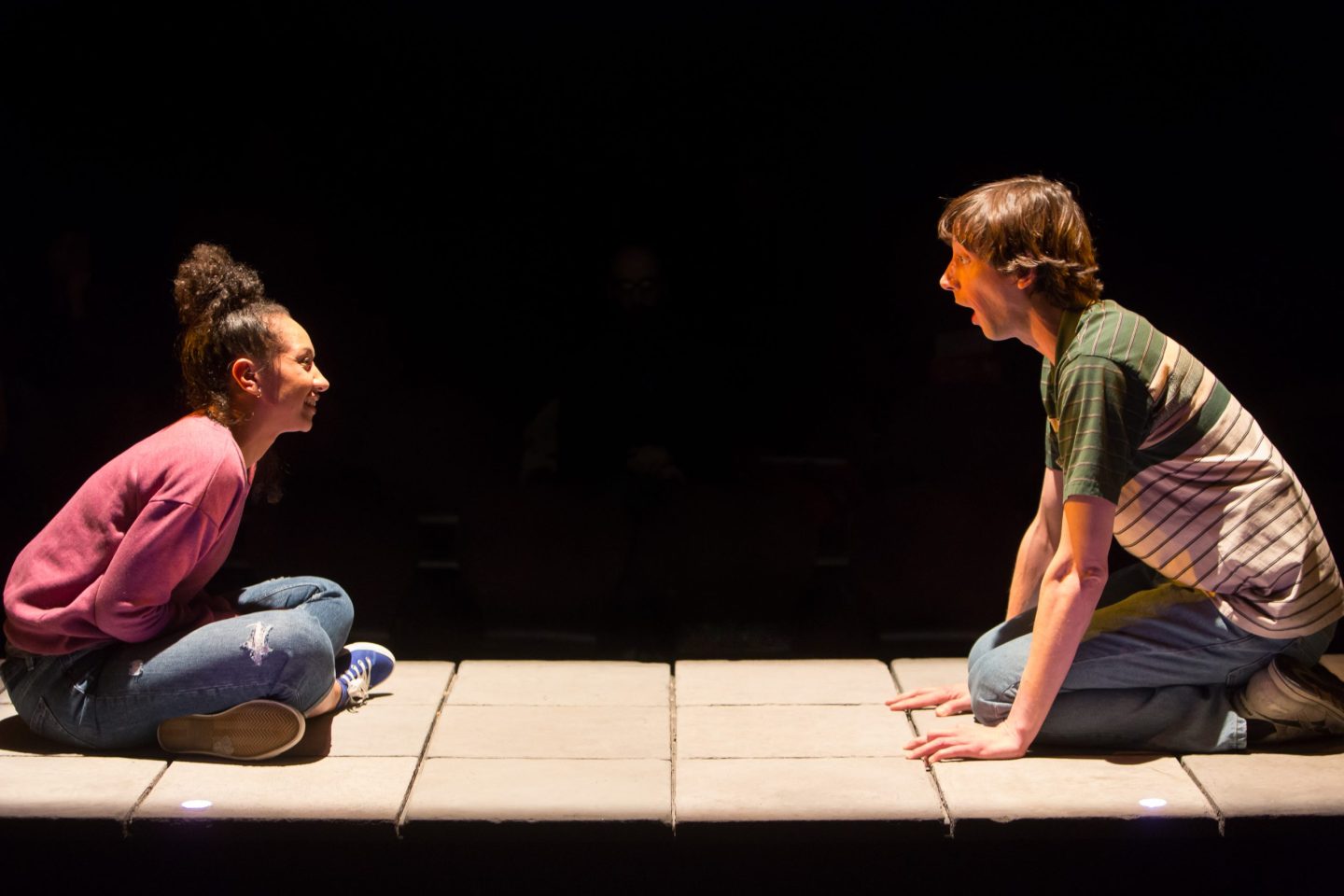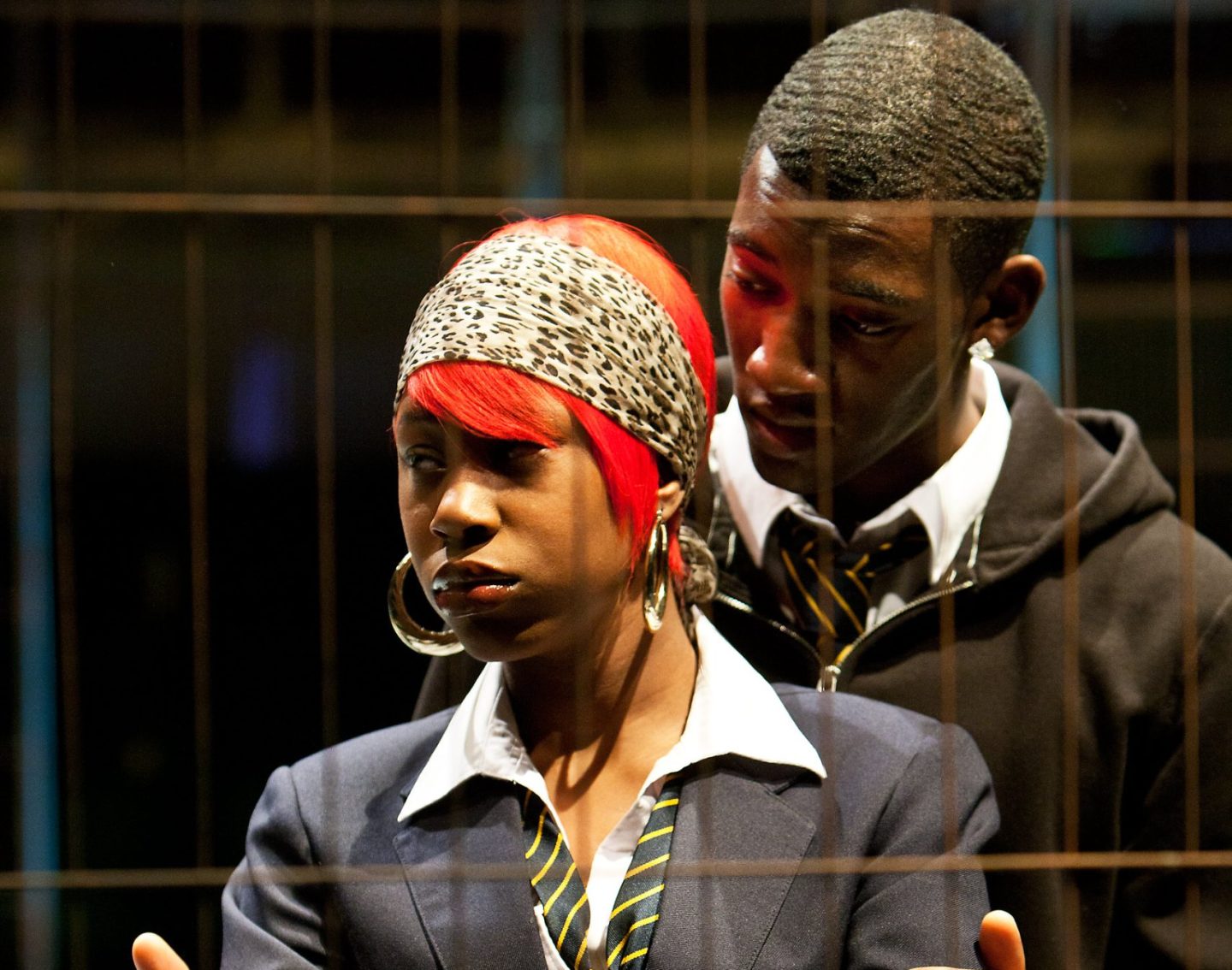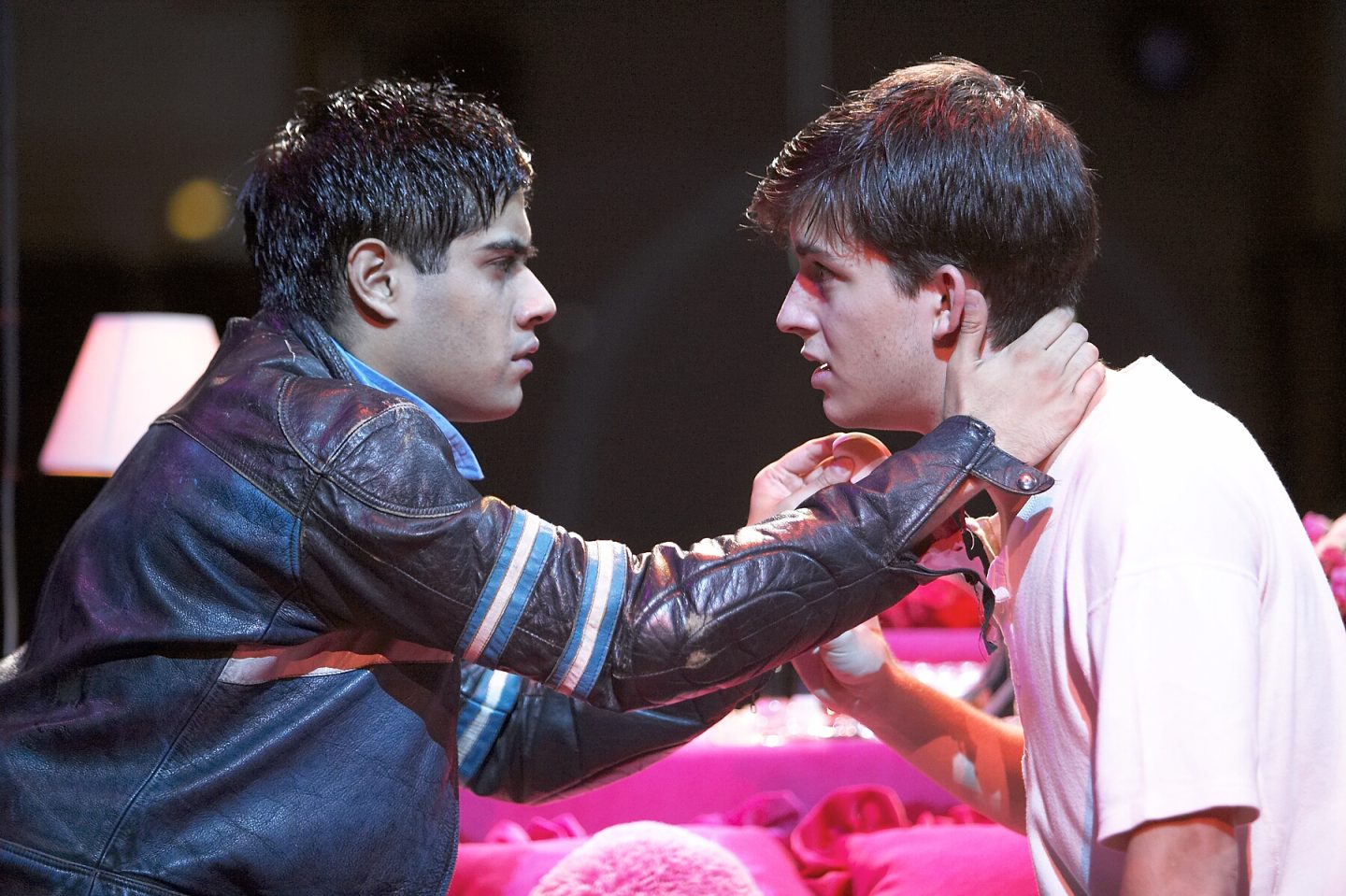-

Martha Loader: Bindweed
A shattering and darkly funny play about responsibility and rehabilitation, considering what can be done to tackle abuse at its… -

Katherine Chandler: Bird
A story of growing up outside a family but inside the fiercest of friendships. -

Alistair McDowall: Brilliant Adventures
A fast-paced tale of brotherhood, addiction and breaking the laws of physics. -

Gareth Farr: Britannia Waves The Rules
An arresting and angry look at conflict and its effect on soldiers returning home – to a world they no… -

Nathan Queeley-Dennis: Bullring Techno Makeout Jamz
A love letter to Birmingham, exploring Black masculinity through Beyoncé lyrics, techno raves, and the deeply intimate relationship between a… -

Tim Foley: Electric Rosary
A sharp and timely play asking what faith really means in the age of artificial intelligence and what it is… -

Stuart Slade: Glee & Me
An unexpectedly optimistic portrayal of love and the extraordinary resilience of the human spirit. -

Alan Harris: How My Light Is Spent
A funny, hopeful drama about loneliness, longing and being left behind. -

Vivienne Franzmann: Mogadishu
A gripping and urgent play about a well-meaning teacher who intervenes on behalf of a troublesome student, with terrifying consequences. -

Duncan Macmillan: Monster
Exploring the moment when a teenager is no longer seen as needing support or protection. -

James Fritz: Parliament Square
A raw, disturbing and compassionate play that forces a confrontation with some of the most urgent questions we face. -

Ben Musgrave: Pretend You Have Big Buildings
A tender and funny play about growing up in Romford in the shadow of Canary Wharf.
Productions
Each winner enters into a development process with the Royal Exchange Theatre in an endeavour to bring their work to production. There have been co-productions with Lyric Hammersmith, Live Theatre, Soho Theatre, Bush Theatre, Orange Tree Theatre, Sherman Theatre, High Tide and the Royal Court Theatre. Work has also gone on to be produced internationally from Australia, USA, Germany, France, to Canada and Sweden.






